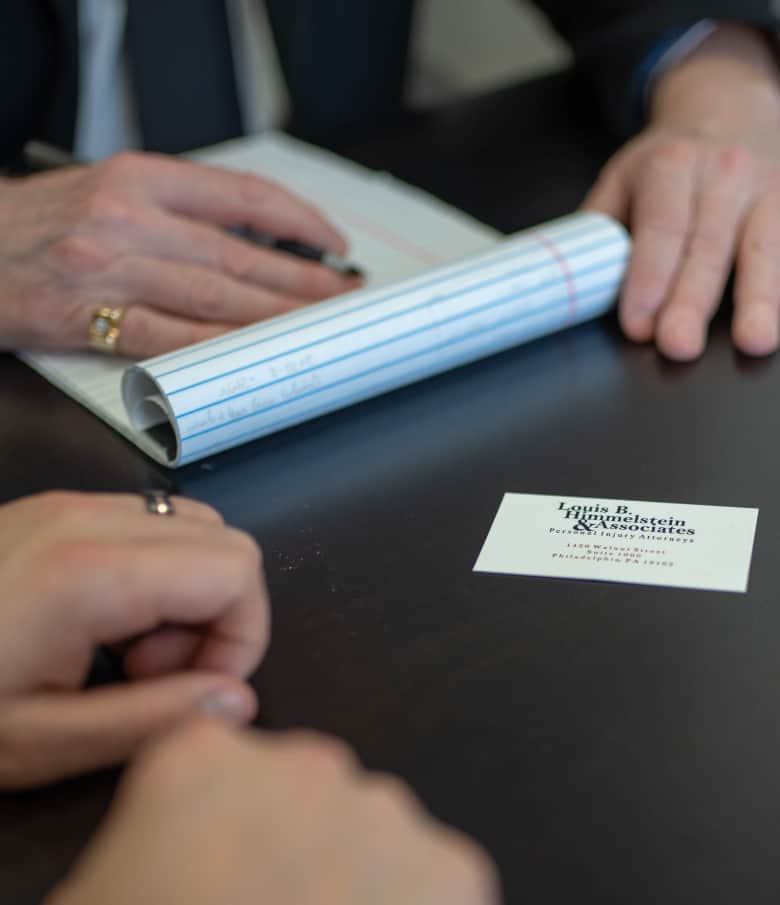Personal Injury Attorney Serving the Philadelphia Area
When it comes to personal injury cases, the concept of negligence is fundamental. At Louis B. Himmelstein & Associates, we often encounter clients who are seeking justice for injuries they’ve suffered due to someone else’s carelessness. Understanding what constitutes negligence is crucial for anyone who finds themselves in such unfortunate circumstances. In this blog post, we’ll break down the basics of negligence, helping you understand your rights and how they can be protected.
Defining Negligence
Negligence, in legal terms, refers to the failure to take proper care in doing something, leading to damage or injury to another person. It is a core concept in personal injury law, serving as the basis for determining liability and compensation. Negligence occurs when an individual’s actions fall short of what a reasonable person would have done under similar circumstances.
The Four Elements of Negligence
For a personal injury claim based on negligence to be successful, four key elements must be established:
1. Duty of Care
The plaintiff must prove that the defendant owed them a duty of care. This means that there was a legal obligation to avoid causing harm. For example, drivers have a duty to obey traffic laws and not endanger others on the road.
2. Breach of Duty
Next, it must be shown that the defendant breached this duty of care. A breach occurs when the defendant fails to act as a reasonably prudent person would have acted under similar circumstances. This could involve anything from a business owner failing to clean up a spill, leading to a slip and fall, to a doctor not following standard medical practices during treatment.
3. Causation
The plaintiff must demonstrate that the defendant’s breach of duty directly caused their injury. This is often the most contested part of a negligence claim, as it requires showing a direct link between the breach of duty and the harm suffered.
4. Damages
Finally, the plaintiff must prove that they suffered actual damages as a result of the defendant’s actions. Damages can include medical expenses, lost wages, pain and suffering, and more. Without evidence of damages, a negligence claim cannot succeed.
Examples of Negligence
Negligence can manifest in countless ways, depending on the context. Common examples include:
- Car Accidents: A driver who texts while driving and causes a collision.
- Medical Malpractice: A surgeon who operates on the wrong body part.
- Premises Liability: A store owner who neglects to warn customers of a wet floor, leading to a fall.
Why Legal Expertise Matters
Negligence cases can be complex, requiring a thorough understanding of legal principles and the ability to gather and present evidence effectively. At Louis B. Himmelstein & Associates, our experienced personal injury attorneys specialize in navigating these intricacies. We are committed to advocating for our clients’ rights, ensuring they receive the compensation they deserve for their injuries.
Schedule Your Free Consultation With Our Philadelphia Personal Injury Attorney Today
Negligence is a key concept in personal injury law that allows injured individuals to seek compensation when their harm results from someone else’s failure to act with due care. If you believe you’ve been a victim of negligence, it’s important to consult with a knowledgeable personal injury attorney who can assess your case and guide you through the legal process. At Louis B. Himmelstein & Associates, we’re here to provide the expertise and support you need to achieve a favorable outcome. Contact us today to learn more about how we can help you on your journey to justice.




